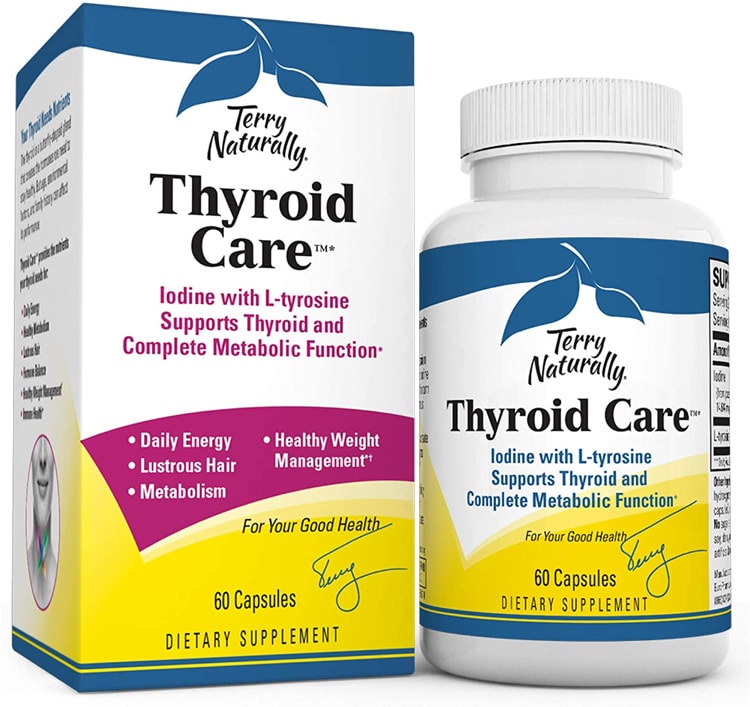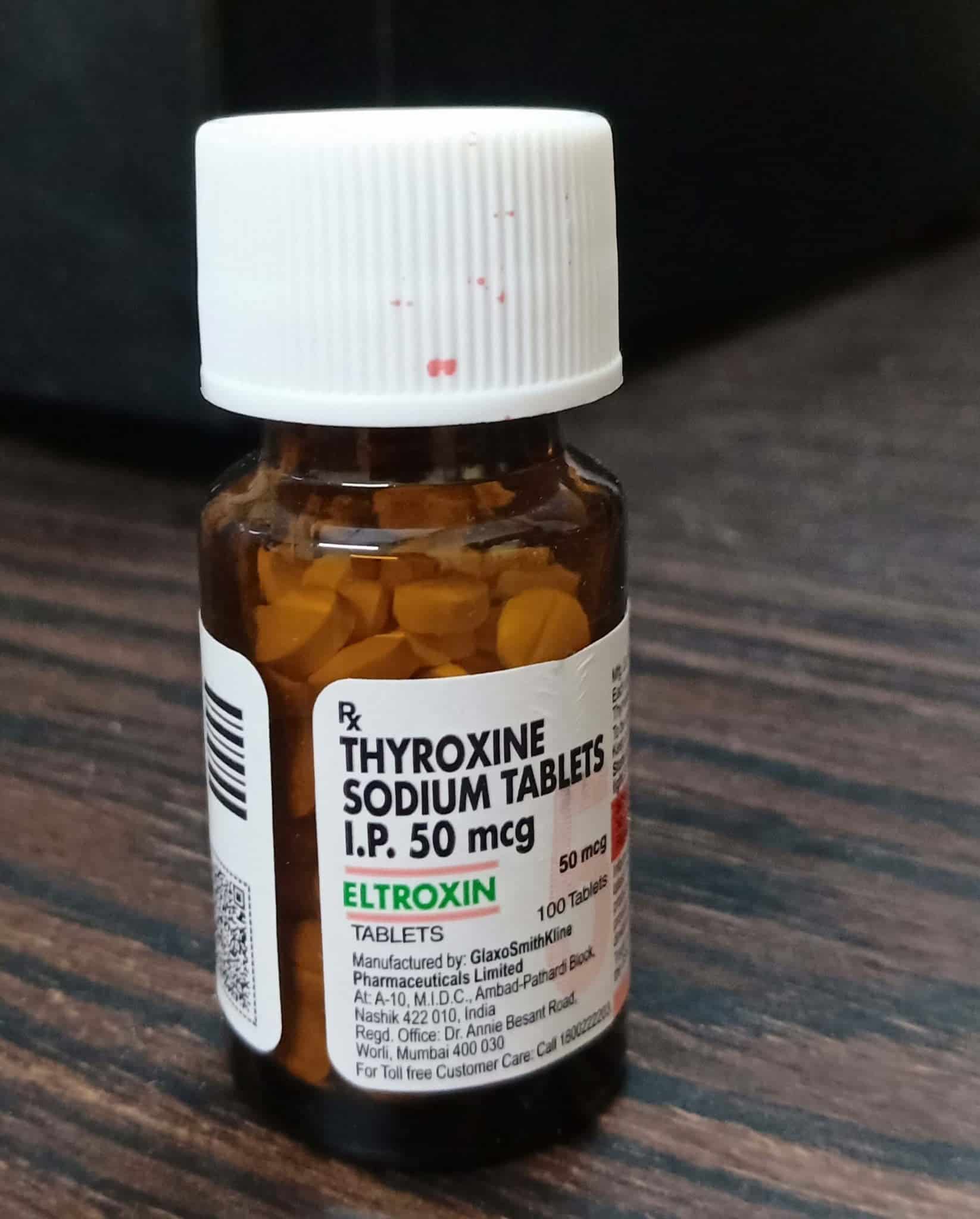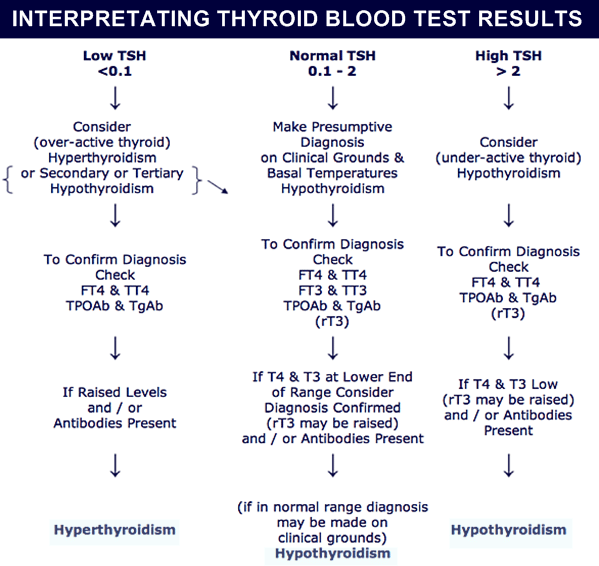Which Medications Are Available To Treat Hypothyroidism
Hypothyroidism is a lifelong condition. For many people, medication reduces or alleviates symptoms.
Hypothyroidism is best treated by using levothyroxine . This synthetic version of the T4 hormone copies the action of the thyroid hormone your body would normally produce.
The medication is designed to return adequate levels of thyroid hormone to your blood. Once hormone levels are restored, symptoms of the condition are likely to disappear or at least become much more manageable.
Once you start treatment, it will take several weeks before youll begin feeling relief. Youll require follow-up blood tests to monitor your progress. You and your doctor will work together to find a dose and a treatment plan that best addresses your symptoms. This can take some time.
In most cases, people with hypothyroidism must remain on this medication their entire lives. However, the amount you take may need to be adjusted, especially if you have Hashimotos thyroiditis. To make sure your medication is still working properly, your doctor will likely test your TSH levels yearly.
If blood levels indicate the medication isnt working as well as it should, your doctor will adjust the dose until a balance is achieved.
How To Take Your Medicine
To make sure your hypothyroidism stays under control:
Stick with the same brand. Different types of thyroid hormone medicine may contain slightly different doses. That could mess with your hormone levels.
Follow a schedule. Take your medicine at the same time each day. Aim for about an hour before a meal or at bedtime. Don’t take it when you eat. Food, as well as some supplements, such as calcium, can affect the way your body uses it.
Don’t skip doses. If you miss one, take it as soon as you remember. You can take two pills in one day if you need to.
Follow instructions carefully. Don’t stop taking your medicine without first checking with your doctor.
Desiccated Thyroid Side Effects
Get emergency medical help if you have any signs of an allergic reaction: hives difficult breathing swelling of your face, lips, tongue, or throat.
Less serious side effects may include temporary hair loss .
This is not a complete list of side effects and others may occur. Call your doctor for medical advice about side effects. You may report side effects to FDA at 1-800-FDA-1088.
You May Like: Only Natural Pet Feline Thyroid Wellness
Getting Back In Balance
When the delicate balance of thyroid hormones is upset, your whole body can be affected. You might feel more tired, be more likely to gain weight or navigate your days in a lethargic brain fog. It makes sense then to identify and eliminate some of the most common culprits that upset thyroid levels:
Related Topic:
To find a doctor at Henry Ford, visit henryford.com or call 1-800-HENRYFORD .
Combination Medications With Synthetic T3 And T4 Hormones

Also available on the market are combination medications that contain both synthetic T4 and T3 hormones, but such medications arent usually recommended. For one thing, most patients see their condition improve with synthetic T4 alone because of the ability of the thyroid to convert these hormones to T3 when needed.
In some cases, your doctor may recommend a separate T3 medication called liothyronine in addition to levothyroxine.
Don’t Miss: Best Selenium Supplement For Thyroid
Starting On Thyroid Hormone Treatment
Your doctor will decide how much to give you based on your:
- Thyroid hormone levels
If you’re older, or you have heart disease, you’ll probably start on a small dose. Your doctor will slowly raise the amount over time until you see an effect.
About 6 weeks after you start taking the medicine, you’ll go back to your doctor for a blood test to check your thyroid hormone levels. Depending on what the results are, your dosage may change.
Once your levels are stable, you’ll see your doctor for a blood test every 6 months to a year.
What Happens If Hyperthyroidism Is Left Untreated
Hyperthyroidism can impact many parts of your body. Different systems, ranging from your vascular system to your skeletal system can all be affected if you have an overactive thyroid.
Complications from untreated or undertreated hyperthyroidism include:
If youre experiencing symptoms of hyperthyroidism, its important to see your healthcare provider so they can determine a proper diagnosis and recommend treatment.
Don’t Miss: Treatment For Thyroid Problems In Cats
What Medications Can Be Used
The main medications used for the treatment of an overactive thyroid are known as anti-thyroid drugs. These reduce the production of thyroid hormones. Thiamazole and carbimazole are the most commonly used anti-thyroid drugs. If these drugs aren’t tolerated, propylthiouracil is sometimes used. It’s always a good idea to discuss the benefits and drawbacks of these drugs with your doctor. The most common side effects of anti-thyroids include skin rashes, fever and joint problems. If a fever arises, it’s important to see a doctor immediately because the fever could be a sign of a blood disorder although this is rare.
Sometimes a medication called perchlorate is used instead. Perchlorate prevents iodine from being absorbed by the thyroid gland. Iodine is a trace element that the thyroid gland needs in order to produce hormones. An overactive thyroid that has access to a lot of iodine can also produce more hormones. Perchlorate is used in, for example, people who have an overactive thyroid and need to have an x-ray examination using iodine-containing contrast agents.
If the overactive thyroid causes a rapid or irregular heartbeat, a beta blocker can be taken too. People who have bulging eyes due to Graves’ disease can also use steroids.
Warnings For People With Certain Health Conditions
For people with heart problems: Levothyroxine can increase your risk of serious heart problems, such as heart attack, abnormal heart rhythm, and heart failure. This risk is increased if youve already had these problems. Tell your doctor if you have heart problems or a history of heart problems. Your doctor may decide to start you on a lower dosage of levothyroxine.
For people with diabetes: Let your doctor know if you have diabetes. Taking levothyroxine can make your diabetes worse. Your doctor may monitor your blood sugar level more closely while you take this drug and adjust your diabetes drugs if needed.
For people with osteoporosis: Using levothyroxine for a long time can cause decreases in your bone mineral density and put you at higher risk of bone fractures.
For people with adrenal or pituitary gland problems: Let your doctor know if you have any adrenal or pituitary gland problems. Using levothyroxine can cause changes to your levels of thyroid hormone that could make these problems worse.
For people with blood clotting disorders: Let your doctor know if you have any blood clotting disorders. Taking levothyroxine may make it more difficult for your blood to clot and make bleeding more likely.
Recommended Reading: What Blood Tests Are Done For Thyroid
Solutions For Common Concerns
Clearly, there are sensible health reasons to take your prescribed thyroid medication. There are experiences, however, that may cause you to question the benefits of your medications and not stick with your treatment plan.
If you are not taking your thyroid medication because of one or more of the following reasons, try the suggested solutions to address your concerns.
Synthetic T4 Hormones To Replace Insufficient Thyroid Hormones
Hypothyroidism is most commonly treated with thyroid hormone replacement therapy, and the most effective way to treat hypothyroidism is with synthetic T4 medication. While these hormones are identical to the natural T4 that the thyroid makes, several factors can affect the exact dosage you need. These include your age, the severity of symptoms, and your overall health profile.
Synthetic T4 is available in a prescription medication called levothyroxine, sold under brand names such as Levothroid and Synthroid. There are many generic versions available, too. Youll want to take care in switching back and forth between brands, as there may be slight variations in doses.
When you first start taking prescription thyroxine hormones, your doctor will prescribe a dosage based on your weight and your blood test results for TSH and free T4 levels. Children, teenagers, and the elderly generally require smaller doses.
You May Like: How To Check The Thyroid
Other Points To Be Mindful Of
- Give the medication several weeks to have its full effect. Treating hypothyroidism is often not a quick fix. T4 thyroid hormone takes 4-6 weeks to build up in your system, while T3 is more short-acting. There will often be dose adjustments to get you to your optimal thyroid hormone levels. Read more about optimal thyroid levels here.
- Look out for common hyperthyroid symptoms . Let your doctor know immediately if you feel prolonged heart racing, muscle aches or weakness, feelings of agitation or aggression, a shaky feeling, or excessive sweating.
- Don’t stop taking your thyroid medication suddenly. This could cause a sudden return of hypothyroid symptoms, including changes in mood. Always speak with your doctor if you feel you need to reduce or increase your dose.
- Be aware that you may need a different form of thyroid medication. Many patients need a combination T3/T4 approach with either a levothyroxine/liothyronine method, or through natural desiccated thyroid medication, which contains all the thyroid hormones.
Whats The Connection Between Hypothyroidism And Weight Loss

Once youre treated for hypothyroidism, you may lose any weight you gained from low hormone levels. Thats because once your thyroid levels are restored, your ability to manage your weight returns to normal.
If youre treating hypothyroidism but dont see a change in your weight, you may still be able to lose weight if thats a goal for you. Work with a doctor, registered dietitian, or personal trainer to develop a healthy eating plan and exercise strategy to reach or maintain a moderate weight.
Read Also: What Can I Take For Thyroid Pain
Why Is It Important To Take Thyroid Medication Properly
- Worsening hypothyroid symptoms: Lack of thyroid hormone in the body leads to persistence and, later, deterioration of the signs and symptoms of thyroid deficiency.
- Increased risk of developing other diseases: Untreated hypothyroidism can increase your risk for comorbidities, including heart disease, high blood pressure, high cholesterol.
Did You Know?“Many doctors and pharmacists fail to mention the details to patients regarding how to take thyroid medication.”
How Do Doctors Diagnose Hypothyroidism
Your doctor will take your medical history and perform a physical exam. A hypothyroidism diagnosis cant be based on symptoms alone because many of its symptoms are the same as those of other diseases.1 Thats why your doctor may use several thyroid blood tests and imaging tests to confirm the diagnosis and find its cause.
Because hypothyroidism can cause fertility problems, women who have trouble getting pregnant often get tested for thyroid problems.
You May Like: Radiofrequency Ablation Thyroid Nodule Cost
Iodine Supplements With Iodized Salt
The most common cause of hypothyroidism in the world is a lack of iodine in the diet. However, this doesnt apply to people in the United States, where dietary iodine is plentiful. This trace element is a key ingredient in iodized salt , and its also naturally present in certain foods, such as seaweed and milk products.
While iodine supplements are widely available, people with hypothyroidism should steer clear of such products . If you have hypothyroidism, too much iodine may increase your risk for:
- Gastrointestinal upset
The recommended daily amount of iodine is 150 micrograms per day for adults older than 18. Pregnant and breastfeeding women need more: 220 mcg and 290 mcg per day, respectively.
Iodine is of special interest to people concerned about their thyroid health because of its natural effects on thyroid hormones. First, iodine plays a role in TSH and subsequent T3 and T4 hormones. Without enough iodine in the body, TSH cant signal the thyroid to make enough hormones. This can lead to an enlarged thyroid gland .
With hypothyroidism, iodine can either cause too much thyroid hormone or a suppression of thyroid hormones.
Radioactive Iodine Treatment For Hyperthyroidism
If your thyroid gland produces too much thyroid hormone, you have a condition known as hyperthyroidism. Treatment for this condition aims to reduce and regulate thyroid hormone production.
Standard treatment for hyperthyroidism uses radioactive iodine to destroy thyroid cells. This may cause the levels of your thyroid hormone to remain low permanently.
You May Like: What Do You Test For Thyroid
Most Thyroid Patients Take Their Thyroid Medication Incorrectly
Ive been helping thyroid patients for years and this is an issue that is far more prevalent than it should be.
What am I talking about?
Im talking about how to take your thyroid medication.
I do understand why many thyroid patients get it wrong, though.
When you break down how to take your thyroid medication it can get complex rapidly.
But it doesnt have to be.
Today we are going to talk about everything you need to know to ensure that you are taking your thyroid medication correctly.
Why is this important?
Well, if you arent taking it correctly then you have no idea whether it is working or not.
If you dont take it correctly then you cant blame your thyroid symptoms on anything else.
And if you were to take it correctly, you might find that you see an almost immediate improvement in your thyroid symptoms.
Taking your medication correctly ensures that the thyroid hormone that your body needs gets into your body from your gut which is no easy task as you will soon find out.
Foods to Avoid if you Have Thyroid Problems:
Ive found that these 10 foods cause the most problems for thyroid patients. Learn which foods you should avoid if you have thyroid disease of any type.
The Complete List of Thyroid Lab tests:
The list includes optimal ranges, normal ranges, and the complete list of tests you need to diagnose and manage thyroid disease correctly!
Thyroid Hormone Suppression Therapy For Benign Nodules And Goiter
In the past, thyroid hormone suppression therapy was used to prevent benign thyroid nodules and enlarged thyroid glands from growing. More recent evidence has shown that this practice is not effective in regions of the world that have adequate iodine intake . Moreover, excess thyroid hormone can increase the risk of heart rhythm problems and bone loss, so this is no longer a standard practice in iodine sufficient populations.
Don’t Miss: What Supplements To Take For Low Thyroid
Do You Want To Get Off Of Your Thyroid Medication
If youre like most thyroid patients then youve probably been told that once you start taking thyroid medication you have to be on it for the rest of your life.
But what if I told you that this isnt the whole story?
What if I told you that there are plenty of people who can get off of their thyroid medication?
It may sound too good to be true but it doesnt have to be.
New studies suggest that as many as 30% of thyroid patients may be taking thyroid medication when they dont need it and may be able to get off of it.
Thats a huge number of people when you consider that levothyroxine is one of the most commonly prescribed drugs in the United States!
How is it possible that so many people may be able to stop taking their medication?
The reason is simple:
There are plenty of causes of reversible hypothyroidism and some of these conditions either go away on their own or can be reversed through therapies and actions that you take.
For instance, if you are someone who has been following the advice listed on my blog about how to change your diet, how to use thyroid support supplements, how to replace nutrient deficiencies, how to exercise appropriately, then theres a chance that you may fall into that group.
In addition to this group of people, there are also thyroid patients who may have been incorrectly placed on thyroid medication and have been taking it for years because no one ever stopped to ask why they were placed on it in the first place.
Today you will learn:
Can I Develop Hyperthyroidism During Pregnancy

During early pregnancy, your body needs to produce more thyroid hormones than normal to help the developing fetus. These hormones are particularly important for its brain and nervous system. Having thyroid hormone levels that are a little higher than normal is alright, but if your levels increase dramatically, your healthcare provider may need to form a treatment plan. High levels of thyroid hormones can impact not only you but also the fetus.
It can be difficult to diagnose hyperthyroidism during pregnancy because your thyroid hormone levels naturally increase and the other symptoms of pregnancy mask signs of hyperthyroidism.
Recommended Reading: How Long Does Thyroid Cancer Take To Develop
You Don’t Feel Any Better
Thyroid medications usually do not work right away. It can take a few days to a few weeks for you to even start noticing a difference in how you feel. If you don’t feel better after taking your medication for several months, you may need a dose adjustment or a different medicationnot a complete stop of your regimen.